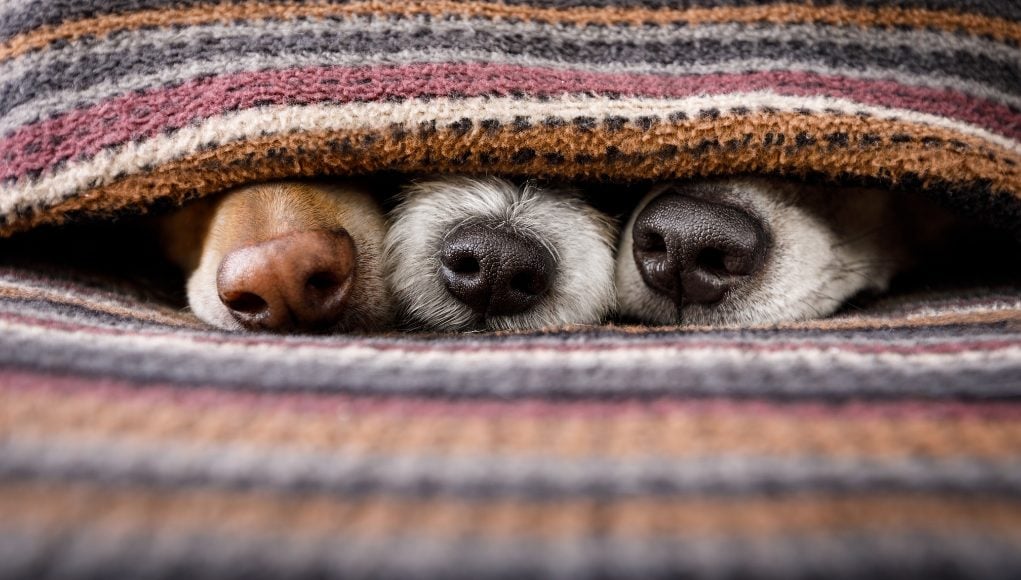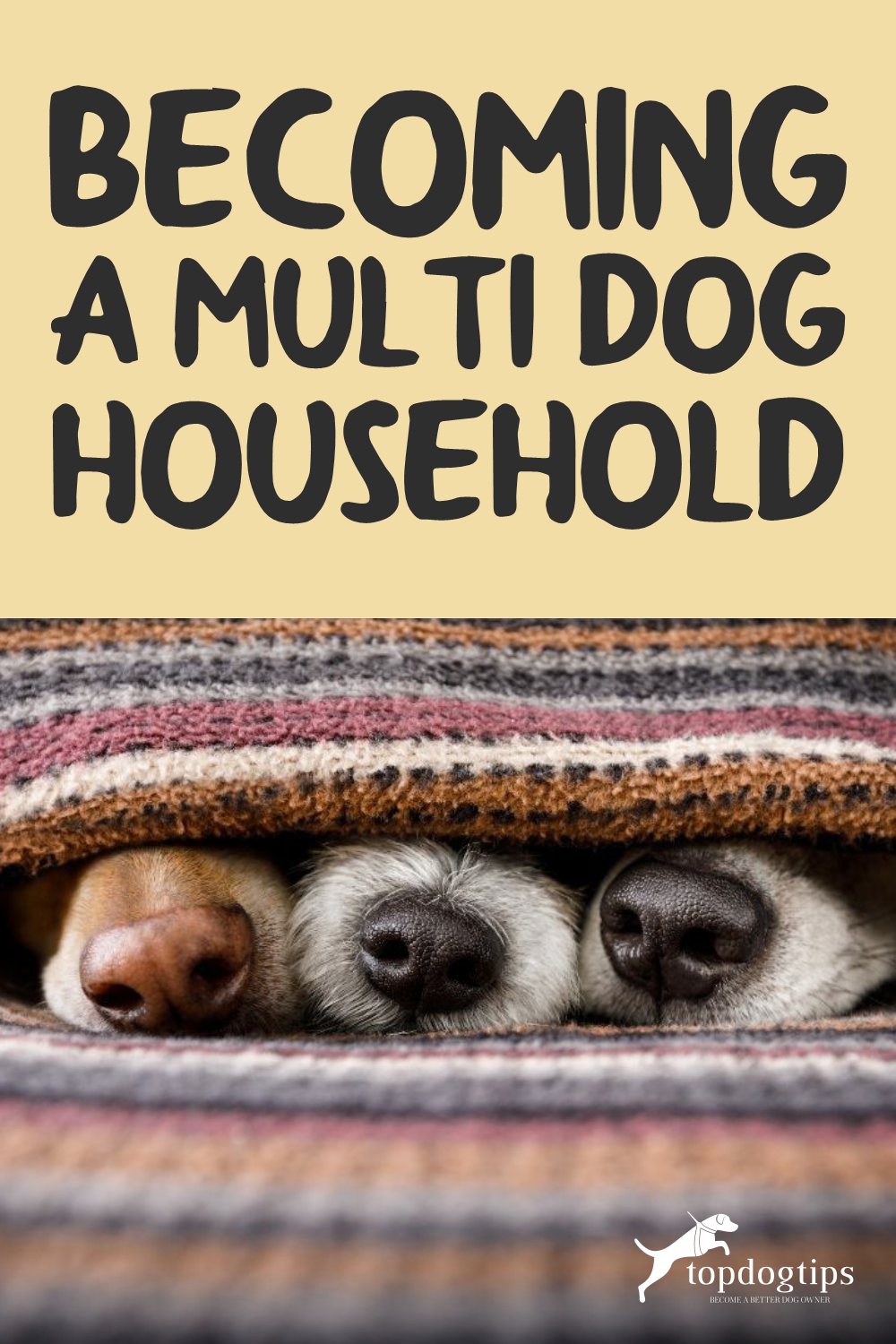Table of Contents
- Questions To Ask Yourself Before Becoming A Multi-Dog Household
- Common Misconceptions About Getting Another Dog
- 1. A multi-dog household will alleviate my old dog’s boredom
- 2. A multi-dog household will lessen my old dog’s aggression towards other canines
- 3. A multi-dog household will correct my dog’s behavioral and anxiety issues with other pets
- 4. Adopting/Buying a new dog will make my children responsible
- 5. Adopting/Buying a new dog is popular
- Guidelines and Tips To Follow For Your Multi-Dog Household
- Before Bringing The New Dog Home
- 1. Avoid getting your new dog while your old dog tags along
- 2. Have your dogs meet on neutral ground to familiarize themselves with each other first
- 3. Let them get to know each other under close supervision
- 4. Take your dogs home but don’t go inside your house right away
- 5. Don't forget to plan the first trip home
- Before Bringing The New Dog Home
- After Bringing The New Dog Home
- Conclusion
Owning a dog is enormously fun; they bring happiness to our lives, causing us to feel less lonely and more alive. It's no secret, especially if you have multi-dog surroundings.
But, it can be a lifelong commitment too. It is a duty you must avoid in making impulsive decisions and a responsibility to think through thoroughly.
Taking care of a single dog is already a lot to take in. However, have you met a person taking care of two to five or more dogs?
Out of every five people we know, at least two or three take care of multiple dogs simultaneously. Some of them may have the same breed of dogs, while others have various ones.
This concept is called a multi-dog household, and it is not an easy thing to do.

It takes a lot of power and responsibility, especially if your dogs are both clever and troublesome.
If you are reading this, you are probably thinking of taking in another pup inside your home. Some of you might have been mentally preparing for this, while some prepared by buying the materials that their new family member might need.
But how ready are you to commit to a multi-dog household? Let's check to find out.
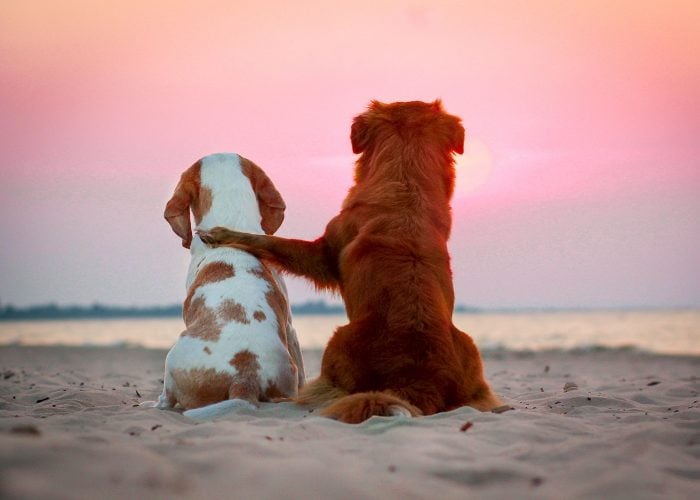
Questions To Ask Yourself Before Becoming A Multi-Dog Household
Read and consider the following circumstances as this may help you in thinking through getting another dog.
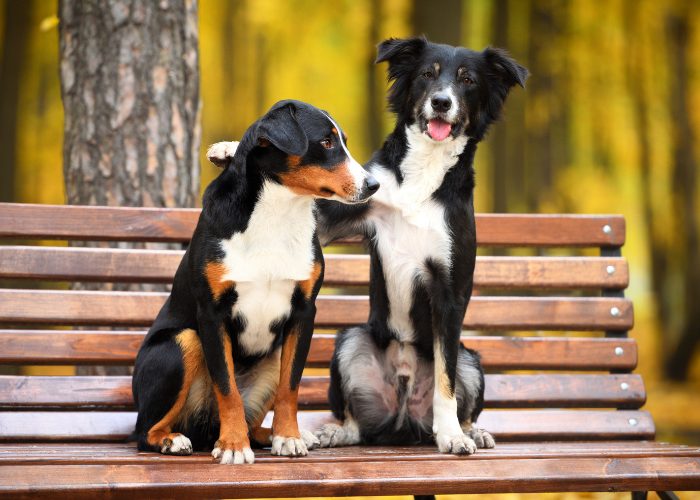
1. Consider your pup. Will they be okay in a multi-dog household?
The term “man's best friend” refers to a dog's loyalty to its human companions.
However, can a dog be a “best friend” to another dog? Scratch that, treat other dogs as their “best friend”?
Let's assess your dog and observe them from a new perspective.
It is in a dog's nature to be domineering when they bond with other dogs. They manifest this even at an early age.
In contrast, they can also be friendly, but they rarely do so, especially if the dogs they just met are a stranger to them.
Thus, if you plan to bring home a “new friend,” make sure that they have already bonded with several dogs in the past.
If not, try to train them by bringing them to a dog park or daycare. Through this, they will be able to socialize and play with other dogs.
It will also help you determine if you closely observe their attitude and behaviors during interaction with other dogs.
Can they bond better with dogs who are the same age as them? Do they like smaller dogs than bigger dogs?
Is it true that they interact better with louder dogs instead of timid ones? Or do they prefer one breed from another?
Ask these questions as you carefully observe your dogs. List them in a paper to help you finalize your decision.
If your dog appears to be not okay with it, they either need more training, or they don't need a doggy companion at all.
Please don't force it upon them, or else it will only cause chaos in your household.
However, if your dog is okay with it, encourage this behavior by letting them interact with more dogs. If this activity goes well, then they're finally ready to have another “man's best friend.”
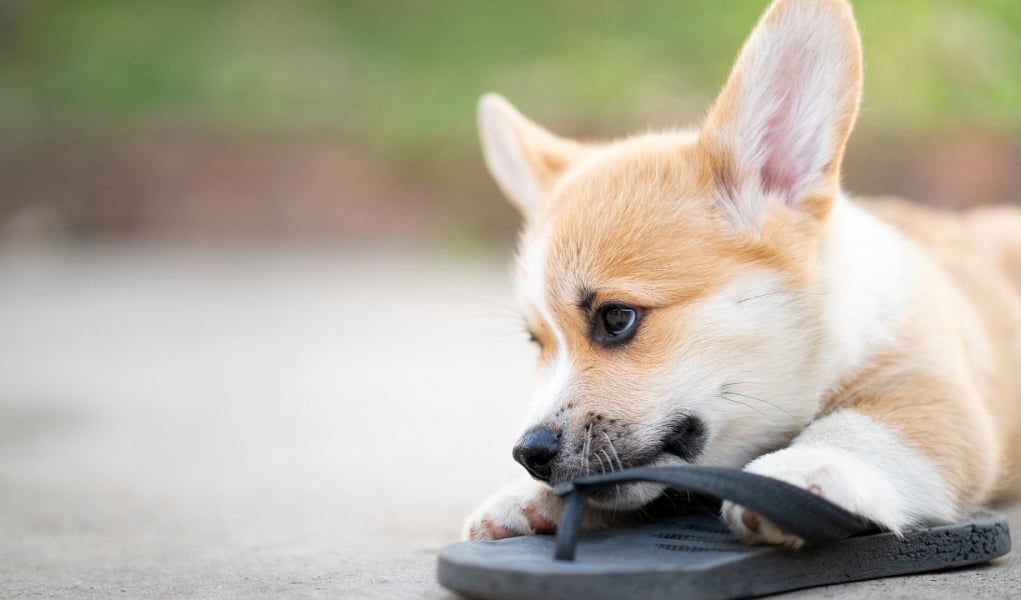
2. What is your pup’s age and energy level?
Just like humans, dogs differ in energy levels depending on their age.
Older dogs prefer to lie around and do nothing all day, while younger dogs have high energy levels that they constantly use to play.
Thus, if you have an older dog planning to get a younger one, ask yourself this question: Can my older dog keep up with a younger dog's mischief?
If your answer is “yes,” you may go on with your plan to bring forth a multi-dog household. However, if your dog tells you otherwise, you must think about how you should solve it.
On the other hand, it may be easier to adopt a new puppy in your household if you own a younger puppy.

3. Can you commit to the responsibility of owning more than one dog?
People with work often would have the means to buy or adopt a dog as a new family member. However, this will also mean that their time within a multi-dog home can be constricted or limited.
Compared to cats, dogs need a lot of attention to stay healthy and happy. You can say that most of them are extroverts, but that depends on their breed.
Some dogs prefer to be alone, while some would rather play and snuggle with their humans.
Thus, if you're the type of person who opts to be at work rather than staying at home, I suggest considering your plan to adopt or buy another dog.
However, if you've already set your mind on it, then you must ensure that your backup plans are ready. I recommend enrolling them in doggy daycare or leaving them to a pet or dog sitter.
Without these plans, you might come home to a house full of a mess.

4. Discuss your plan with the other members of the household
Imagine being welcomed by a dog you do not expect. What do you think would your reaction be?
Perhaps it would be a delight to you, but what about the others?
If you're planning to get a new dog, but you're living in a space with other people, it would be best to discuss it with them first.
Your family, friends, or significant other deserves what you are signing them into since a new pet might change their responsibilities in the household.
Furthermore, they might be uncomfortable with the idea, especially if the new dog requires several maintenance needs. Thus, whether they agree or disagree with it, you must respect their decision.

5. Are you financially stable to accommodate a new pet?
Suppose you're earning a minimum wage salary with your current job; it is probably enough to spend it on yourself and your dog.
But what if you have two or more dogs?
Having more pets means you're going to shoulder more costs in their basic needs. It includes their food, basic supplies, grooming, and vet visits.
If you think you can handle these fees, what about their pet insurance that takes care of their unexpected chronic illness and emergency expenses?
Bear in mind that dogs are high-maintenance, especially when it comes to their medical needs. Thus, you better make sure you can provide for all of them.
If not, then you might want to step back from adopting a new dog.

Common Misconceptions About Getting Another Dog
Somehow, several misconceptions arise when one plans to get another pet.
The following section discusses some of these. Take a look at them, and you may reconsider your plans for getting another dog.

1. A multi-dog household will alleviate my old dog’s boredom
Most new dog owners don't realize how deeply it affects their dogs whenever they spend time with them. Thus, if they are at work or on vacation, they will initially feel guilty for leaving their pets, thinking their dog is probably bored and needs a companion to play with.
If you can relate to what I just said above, please consider not getting a new pet yet. Though it is not impossible to alleviate your dog's boredom in that way, there is nothing like having you spend your day with them.
Please don't do it as long as you do not have the time to devote to your pets. Time is an essential factor in taking care of your dogs.

2. A multi-dog household will lessen my old dog’s aggression towards other canines
Dogs are territorial animals, so if they feel like they have new competition in their space, they can act hostile to it.
If your reason to adopt another dog is to lessen the aggressiveness of your old one, you might want to rethink it again.
Ask yourself a question, is your dog okay with having another dog inside their space? Do they tend to be aggressive when they see one?
If your answer is “yes,” you might want to correct this behavior before hitting on the “getting a new dog” case. Your potential new dog shouldn't act as a guardian or therapist for the older dog's aggressiveness, especially if they are incapable of handling the intimidation.

3. A multi-dog household will correct my dog’s behavioral and anxiety issues with other pets
A dog's behavioral and anxiety issues cannot correct themselves. But with proper guidance and training, they will be able to get through this.
However, if you plan to have a multi-dog household to solve your first dog's issues, this will be the bigger problem.
Like what I said above, your potential new dog is not a therapist. Thus, adopting them for that reason is not okay, nor will it ever be, especially if it risks their safety.

4. Adopting/Buying a new dog will make my children responsible
Children are children. They are naturally curious about certain things that pique their interest, including dogs.
If your children asked you to adopt another pet and promised to take care of them, I assure you that the latter won't go well.
Children have short attention spans. Thus, once you adopt a new dog, they will pass on the responsibility to you one way or another.
If you are not ready to commit to this, I suggest you drop the idea.
Only continue with these plans if you are confident that you can shoulder the responsibility of having another dog in your family.

5. Adopting/Buying a new dog is popular
If you only plan on getting another dog because you think it's popular and the thing to do, then don’t.
They are indeed fantastic, no doubts about that. But that shouldn’t be your reason, because a multi-dog household has its responsibilities.
It would be best if you only got a new dog because you are ready and responsible enough to add one.
Dogs are living creatures; they breathe, think, and feel. Like babies, they need to be taken care of properly to keep them safe and healthy.
So, if you plan on getting another one for that reason, then you might want to reevaluate your decision.
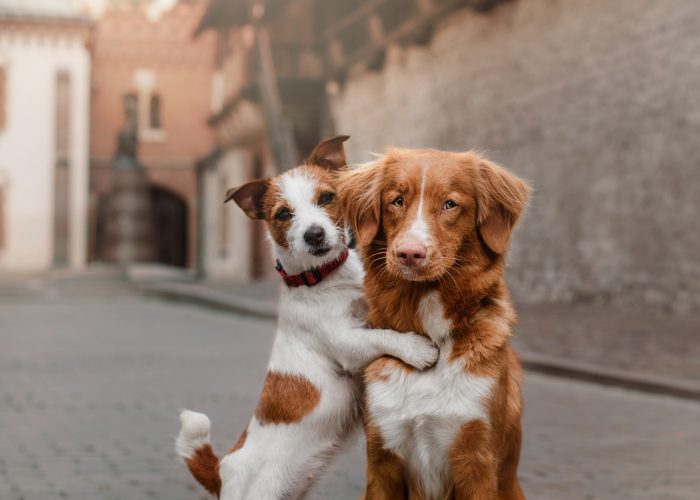
Guidelines and Tips To Follow For Your Multi-Dog Household
If you plan to take two or more dogs in your household, but you don't have the slightest idea of how to take care of them, look no further.
We will list down everything you need to know, plus the tips we can share with you.
To start, let's look at the first section.
Before Bringing The New Dog Home
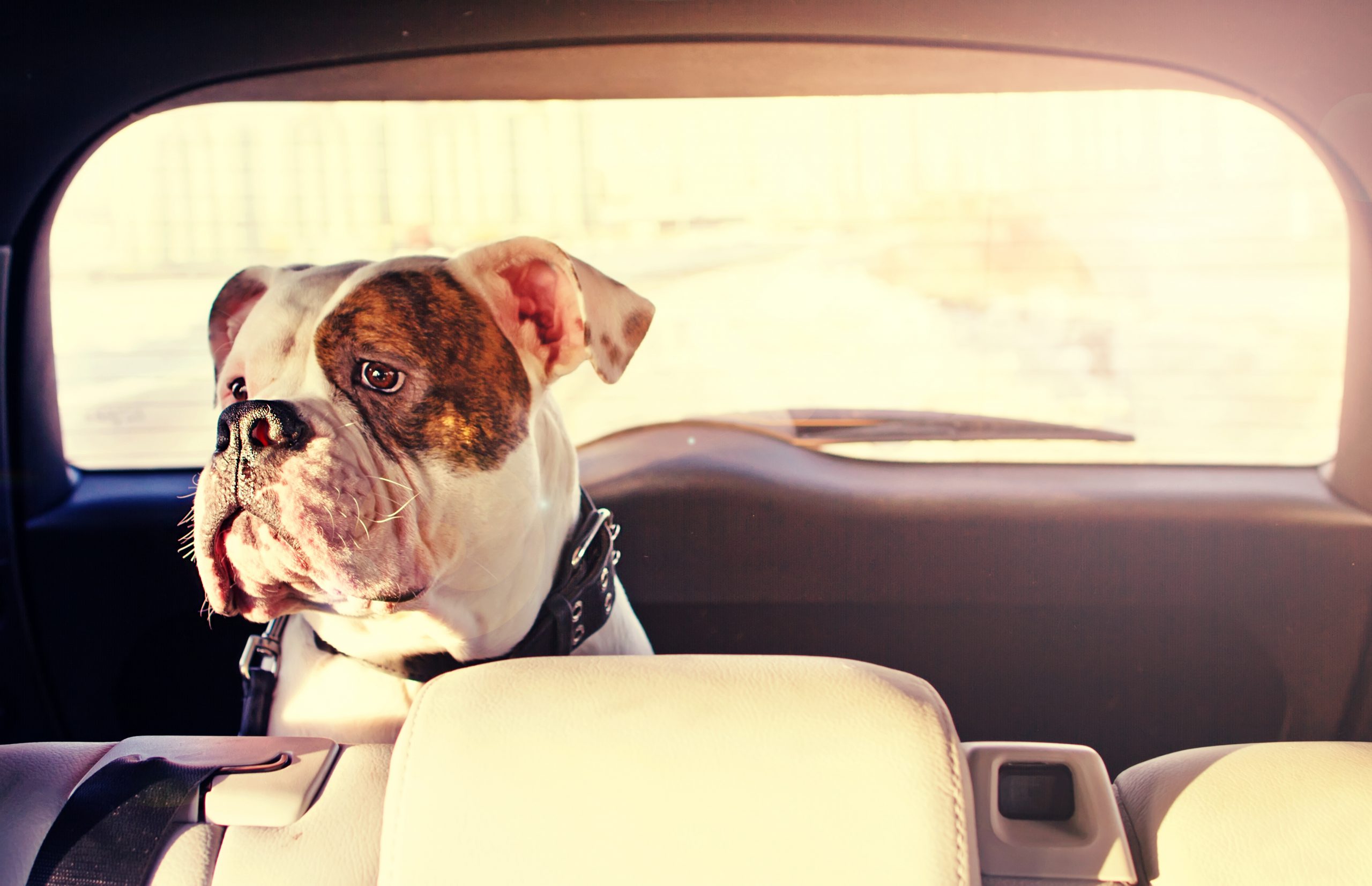
One thing to avoid when fetching your new dog is to avoid bringing your first dog with you. It's better the latter at home than having to witness the tension between the two.
Besides the tension, you might only get distracted by handling two dogs at the same time. If you don't give them the attention they need, you will only create more strain between the two canines.

2. Have your dogs meet on neutral ground to familiarize themselves with each other first
Once you have fetched your new dog, ask someone to bring your old dog to an area with few people. It can be a local park or in a parking lot.
If there is more than one dog, you may request another person handle the other canine to prevent them from hurting each other. Make sure that these handlers are close to your dog and not just a random person you contacted.
The reason for this whole fiasco is to let your new and old dogs meet in that area. Choosing where to meet is an essential factor so that your canines will familiarize themselves at ease.
However, don't let them greet you immediately, instead slowly introduce them to each other.

3. Let them get to know each other under close supervision
Suppose they are now trying to get close to each other; restrain them by tugging on their leashes to avoid sudden fights. You can also put a muzzle on them to ensure they won't accidentally bite anyone.
Once the tension between your dogs is settled down, slowly loosen up their leash and allow them to familiarize each other's scents.
Don't let them get too comfortable yet, and let them set the pace on their own. Only loosen your grip on the leash once you see your dogs wagging their tails.

4. Take your dogs home but don’t go inside your house right away
Once your dogs bond with each other, bring them home but don't let them enter your house yet.
Unlike the park or the parking lot, your old dog will feel more territorial in their home. The reason for this is they treat your house as their “personal space.”
Thus, if you impulsively let your new dog enter your house, your old dog might likely snap and suddenly show aggression towards them.
To solve this, let them bond in your back or front yard first. Let your old dog introduce them to their new space.
This will help them slowly open up to each other in a more personal way.

5. Don't forget to plan the first trip home
Lastly, never forget to plan the trip home once you get your new dog.
Puppies who have never been on a car ride may get rattled. So you must bring someone with you to help them calm down.
Even adult dogs may experience the same thing, which may lead to a long-lasting car trip.
After Bringing The New Dog Home

1. Separate their belongings
Once your new dog arrives, separate its belongings from your old dog’s things, especially the toys. Your senior dog may not like it when a new one would suddenly invade their personal space.
Please don’t force them into liking each other by making them share spaces. This step will only lead them to more tension and stress.
Monitor how they act around one another, and when you feel like they’re slowly getting along, you can have them share things.

2. Constantly pay attention and supervise them
Seeing your dogs getting along with each other is one of the best things a dog owner can witness.
Although some dogs take a few months to be close, some only take weeks to get comfortable with each other.
Either way, it's a relief for us, dog owners, to see them enjoying themselves without our help.
Yet, this doesn't mean that they won't have their own “small fights” anymore. Dogs can still become aggressive, primarily when their competitiveness arises.
Thus, during their activities together, always ensure that you are around to supervise. Keep an eye on them and praise them every now and then.
You can even join in their games if you want to.
However, you must immediately stop your dogs' activity once you sense their hostility.

3. At first, keep their sleeping areas away from each other
Although your dogs are already close with each other, it's still better to put boundaries between them, especially their sleeping areas.
Their crates, pens, or beds must be far away from one another, particularly if they tend to get rowdy while playing. Their rowdiness may slowly turn into hostility which we want to avoid.
This will create tension between dogs, thus leading them to fight, so you should keep them away from each other.

4. Expect your older dog to correct your younger: Leader of the Pack
From time to time, your older dog might growl or snap at your younger pup, but this doesn't mean that they are trying to hurt the latter. It is actually the older dogs' way to develop the youngsters' social skills.
You only have to watch them as it takes place. But prevent once a potential fight arises.

5. Reinforce and reward excellent behavior
Whenever your old dog warms up with your new dog, quickly say “yes,” and treat them with a reward. This act would leave a positive impression on the former that it is okay to have a new dog around.
Furthermore, it will help build trust and respect between the two dogs, thus satisfying their needs.
Conclusion
Having one pet is a joy, but what more if you get twice the fun?
Introducing a new pet into the pack requires infinite time and effort. Especially when your dogs have contrasting personalities and temperaments, a multi-dog household sounds endearingly fun.
It will be quite a hassle and difficult at first, but they'll warm up slowly and eventually.
Remember, you cannot rush anything that needs time to grow. Thus, if you plan to create a multi-dog household, remember to be a responsible and reliable owner.
READ NEXT: When Is The Best Time To Get A Puppy?
WANT TO SHARE THIS…


